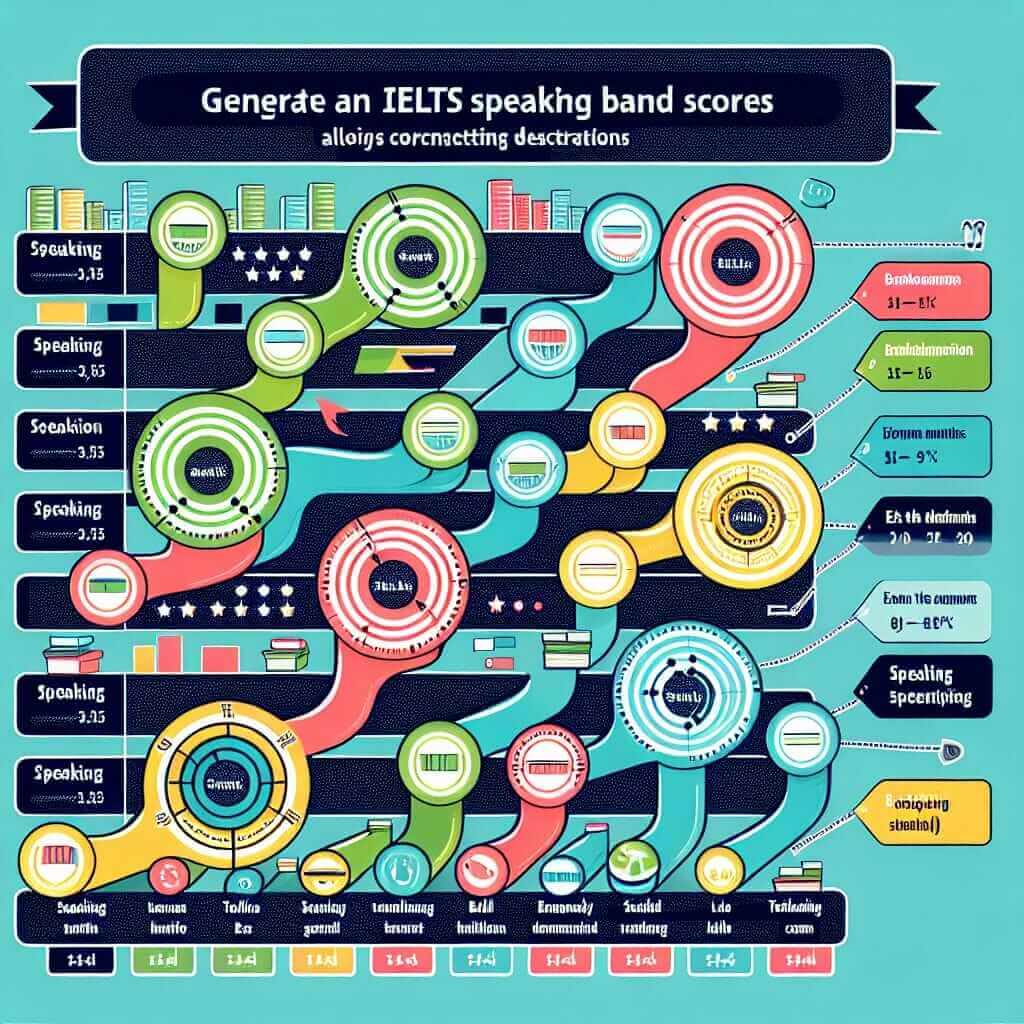As an IELTS instructor with over 20 years of experience, I often encounter students who are curious about the IELTS Speaking test and how it’s evaluated. This curiosity is understandable – understanding the marking criteria is crucial for effective preparation. So, let’s demystify the process!
What Does the IELTS Speaking Band Score Represent?
The IELTS Speaking test assesses your ability to communicate effectively in English across four key areas:
1. Fluency and Coherence: This criterion examines how smoothly and naturally you speak. It looks at your ability to connect ideas logically, use a range of cohesive devices, and speak at length without excessive hesitation.
2. Lexical Resource: This refers to the range and accuracy of vocabulary you utilize. Examiners assess whether your word choices are appropriate for the topic and demonstrate flexibility and precision.
3. Grammatical Range and Accuracy: This criterion focuses on your ability to use a variety of grammatical structures correctly. It considers sentence complexity, tense usage, and the overall accuracy of your spoken grammar.
4. Pronunciation: This evaluates your ability to be understood by native English speakers. It considers aspects like clarity, intonation, stress, and individual sound production.
Each of these criteria is weighted equally, contributing 25% to your overall Speaking band score.
How is the IELTS Speaking Test Marked?
During your 11-14 minute interview with a certified examiner, your performance is carefully assessed against the four criteria mentioned above. The examiner doesn’t assign separate scores for each criterion. Instead, they use their expertise to provide you with a holistic band score reflecting your overall communicative competence.
What Does Each Band Score Mean?
The IELTS Speaking band scores range from 0 (non-user) to 9 (expert user). Here’s a general overview:
-
Band 9 (Expert User): You speak fluently and accurately on any topic with a wide range of vocabulary and grammar. Your pronunciation is effortless and easily understood.
-
Band 7 (Good User): You can communicate effectively on a variety of topics, despite occasional inaccuracies. You have a good command of vocabulary and grammar, and your pronunciation is generally clear.
-
Band 5 (Modest User): You can handle basic communication but struggle with more complex topics or vocabulary. You make frequent grammatical errors, and your pronunciation may be difficult to understand at times.

Tips to Enhance Your IELTS Speaking Score:
-
Practice Regularly: The key to fluency and confidence is consistent practice. Engage in mock speaking tests with a teacher or a language partner.
-
Expand Your Vocabulary: Make a conscious effort to learn new words and phrases related to common IELTS themes.
-
Master Grammar Fundamentals: Ensure a solid grasp of basic grammar rules and practice using diverse sentence structures.
-
Record Yourself Speaking: This helps you identify areas for improvement in your pronunciation and fluency.
-
Listen to Native English Speakers: Pay attention to their pronunciation, intonation, and rhythm to enhance your own.
Example Speaking Test Question:
Describe a person you admire.
Think about how you would answer this question using a range of vocabulary, clear grammar, and natural pronunciation. Consider these aspects:
- Who is this person?
- How do you know them?
- What qualities do you admire in them?
- How have they influenced you?
By focusing on all aspects of the IELTS Speaking criteria and practicing strategically, you can achieve your desired band score. Good luck!